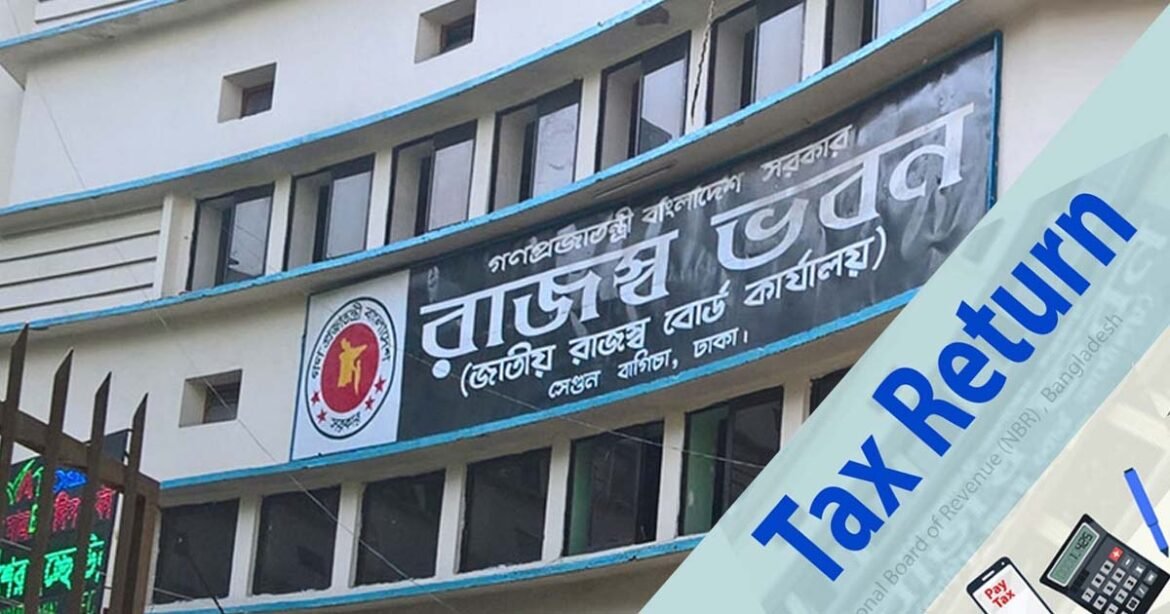Presently, there are approximately 90 lakh Tax Identification Number (TIN) holders, of which about 30 lakh typically submit their returns.
The updated Income Tax Act delivers unfortunate news to taxpayers in relation to their return submission process. As of November 30, the ability to file income tax returns will be eliminated. Furthermore, the new law omits the provision for requesting an extension to the filing deadline. Even considering interest and penalties, submitting the return remains unfeasible. The fresh Income Tax Act has annulled the previous regulations concerning returns. This insight is derived from the provisions of the new income tax law.
New Law Alters Tax Filing Deadlines and Extensions
In accordance with the old law, Tax Day is designated as November 30 each year. This date serves as the ultimate deadline for individual taxpayers to complete the filing of their annual income and expenditure returns. Under the previous regulations, if a taxpayer was unable to file the return within the stipulated timeframe due to valid reasons, they had the option to request an extension of time for filing. Initially, the tax officer would grant a two-month extension, and if the return was submitted within this period, there was a chance to extend it by another two months. During this extended period, the taxpayer would only be liable for a late interest of 4 percent.
You can also read: Bank Credits Up, private Borrowing Down Contrarily
However, the new law has eliminated this opportunity for appeal. Under the new provisions, taxpayers are not allowed to apply for an extension of time if the return is not filed by November 30.
Additionally, under Section 78 of the previous Act, there was an alternate provision. This allowed taxpayers to submit their returns after the designated deadline without needing to apply for an extension with the tax office. In such cases, both daily interest and penalties were imposed. Unfortunately, this option is not retained in the new law. Consequently, the avenue for voluntary return filing has been terminated.
So, what is the method available?
Now, if a taxpayer finds it impossible to file the return by the stipulated deadline of November 30th, are there any avenues to submit the return after the due date? The new law does provide certain options for such scenarios. Such as stated by The National Board of Revenue (NBR), a return will now be issued only if the tax officer deems it necessary for the taxpayer to file one, removing the reliance on the taxpayer’s volition.
In accordance with section 172 of the revised Income Tax Act, if, in the judgment of the Deputy Commissioner, the taxpayer is obligated to file a return after the designated filing period has elapsed, the tax officer will issue a notice to the taxpayer mandating the filing of the return. Within 21 days of receiving the notice, or within a timeframe as permitted by the Tax Officer, the taxpayer must duly submit the return.
New income Tax law posing challenges for taxpayers
Filing a return has become more challenging for taxpayers under these circumstances. Section 174 of the new Act specifies that no tax exemptions will be granted beyond simple interest on taxes. A taxpayer is obliged to settle the tax amount imposed upon them, without any possibility of exemption. This situation excludes the possibility of benefiting from tax exemptions. To illustrate, consider an employed taxpayer who receives tax exemptions for items such as rent, travel, and medical allowances. Previously, one-third of the total income or four and a half lakh taka whichever is lower could be exempted from tax.
However, with the application of section 174, these deductions will no longer apply. Additionally, employees of tax-exempt organizations are also now required to fulfill their tax obligations.
In this context, a senior tax official from the National Board of Revenue (NBR) remarked that the new law reflects an uncompromising stance towards taxpayers when it comes to filing their returns. The requirement for all taxpayers to submit their returns by November 30 is considered impractical.
Presently, there are approximately 90 lakh Tax Identification Number (TIN) holders, of which about 30 lakh typically submit their returns.
New income tax act with many changes
The recently enacted Income Tax Act of 2023, approved by the parliament, is expected to generate considerable attention in the upcoming period. This comprehensive revision marks the first major transformation since the Income Tax Ordinance of 1984. Notable alterations have been introduced affecting individuals, companies, and even start-ups. While certain regulations will be clear-cut, others might lead to diverse interpretations that will likely be refined through consensus over time. In the following discussion, we will highlight the essential modifications that individuals need to consider when navigating the process of filing their income tax returns.
The proposed Income Tax Law for 2023 displays a notable stringency in certain aspects, while also introducing reforms to modernize outdated tax regulations for enhanced ease of use for both individuals and businesses.
Remarkably, the draft incorporates provisions for legitimizing undisclosed funds, commonly referred to as black money, thereby potentially disregarding the concerns of honest taxpayers.
Among its prominent attributes, the draft introduces the possibility of imprisonment for deliberate tax evasion or attempts to evade taxes, carrying sentences from a minimum of six months to a maximum of five years.
For individuals with annual incomes surpassing TK 5 lakh, the upcoming requirement of submitting a statement detailing lifestyle expenses within the income tax return stands out as a noteworthy feature.
Furthermore, if an individual’s annual income exceeds TK 40 lakh or if they engage in international travel, the mandatory submission of an asset statement is set to be enforced.


